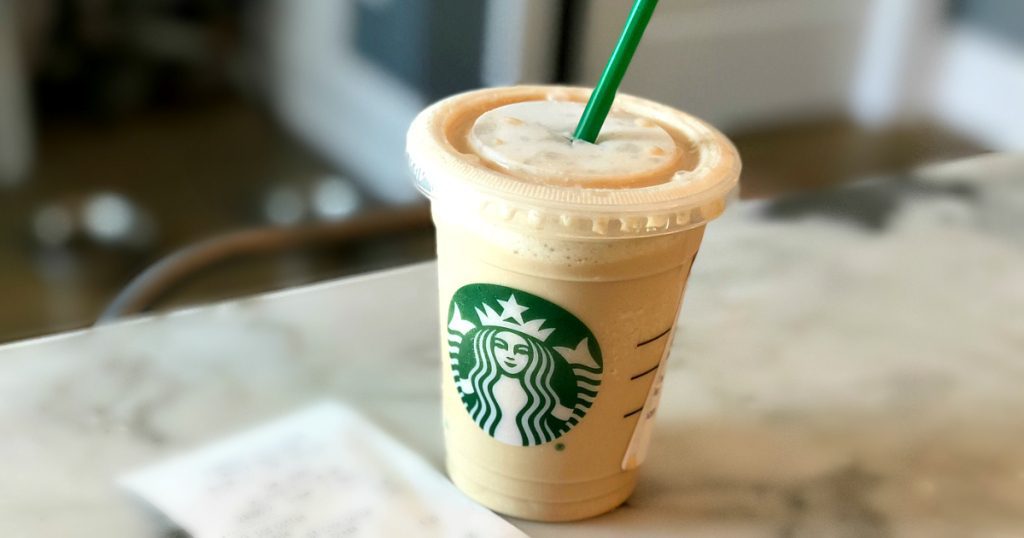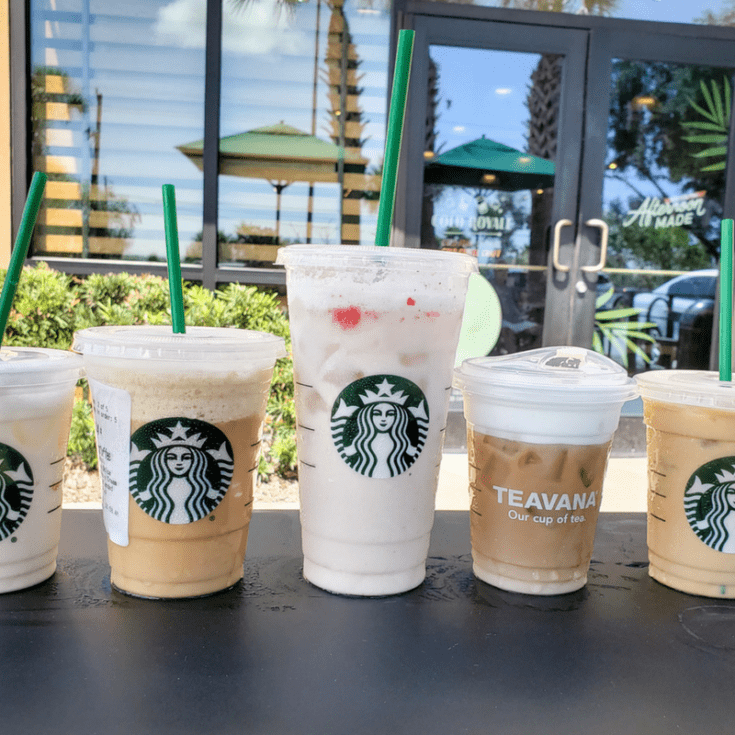Starbucks is a popular destination for coffee and tea lovers, but for those watching their carbohydrate intake, finding a low-carb drink option can be a challenge. Many of the drinks at Starbucks are high in sugar and carbohydrates, which can quickly add up and derail a low-carb diet. Additionally, many of the drinks marketed as “healthy” or “low-calorie” can still contain a significant amount of carbohydrates.
Some of the challenges of finding low-carb drinks at Starbucks include:
- Limited options: While Starbucks offers a variety of drinks, many of them are high in carbohydrates. This can make it difficult to find a low-carb option that fits within your diet.
- Hidden carbs: Many of the ingredients in Starbucks drinks, such as syrups and sauces, contain hidden carbs. This can make it difficult to calculate the exact amount of carbohydrates in a drink.
- Customization: While Starbucks allows customers to customize their drinks, this can be a double-edged sword for those watching their carbohydrate intake. Adding extra ingredients or syrups can quickly increase the carb count of a drink.
Importance of Monitoring Carb Intake
Monitoring carbohydrate intake is important for a variety of reasons. Carbohydrates are the body’s primary source of energy, but consuming too many carbohydrates can lead to weight gain and other health problems.
Additionally, for those with certain medical conditions, such as diabetes or insulin resistance, monitoring carbohydrate intake is crucial for managing blood sugar levels.
Read Also: The Products Derived From Sewage Sludge
By limiting carbohydrate intake, individuals can improve their overall health and wellbeing. This can include weight loss, improved blood sugar control, and reduced risk of chronic diseases such as heart disease and type 2 diabetes.
By understanding the challenges of finding low-carb options and the importance of monitoring carbohydrate intake, youcan make informed decisions about your drink choices at Starbucks. Additionally, the article will provide some suggestions for low-carb drink options that can be customized to fit within a low-carb diet.
Carbohydrates are one of the three macronutrients, along with protein and fat. They are a major source of energy for the body and are found in a wide variety of foods, including grains, fruits, vegetables, and dairy products. However, not all carbohydrates are created equal, and understanding the different types of carbohydrates can help you make informed choices about your diet.
Types of Carbohydrates
There are two main types of carbohydrates: simple and complex.
Simple carbohydrates are made up of one or two sugar molecules and are found in foods such as fruits, vegetables, and candy. They are often referred to as “fast-acting” carbohydrates because they are quickly digested and can cause a rapid spike in blood sugar levels.
Complex carbohydrates are made up of three or more sugar molecules and are found in foods such as whole grains, legumes, and vegetables. They are often referred to as “slow-acting” carbohydrates because they take longer to digest and provide a more sustained release of energy.
Role of Carbohydrates in the Body
Carbohydrates play a vital role in providing energy for the body. When carbohydrates are consumed, they are broken down into glucose, which is used by the body as a source of fuel. Glucose is particularly important for the brain and central nervous system, which rely on a steady supply of glucose to function properly.
Carbohydrates also play a role in protein metabolism. When there is an insufficient supply of carbohydrates, the body may break down protein for energy, which can lead to muscle loss and other negative effects.
Impact of Carbs on Blood Sugar and Insulin Levels
Carbohydrates can have a significant impact on blood sugar and insulin levels. When carbohydrates are consumed, they are broken down into glucose, which enters the bloodstream and causes blood sugar levels to rise. In response, the pancreas releases insulin, a hormone that helps to regulate blood sugar levels.
However, consuming too many carbohydrates or consuming carbohydrates that are quickly digested can lead to a rapid spike in blood sugar levels, which can cause the pancreas to release too much insulin.
Over time, this can lead to insulin resistance, a condition in which the body becomes less responsive to insulin and is unable to regulate blood sugar levels effectively. Insulin resistance is a key factor in the development of type 2 diabetes and other chronic diseases.
Carbohydrates are an essential nutrient for the body, providing energy and playing a role in protein metabolism. However, it is important to understand the different types of carbohydrates and their impact on blood sugar and insulin levels. By making informed choices about carbohydrate intake, individuals can maintain optimal health and reduce the risk of chronic diseases.
Low-Carb Starbucks Drinks

A low-carb diet involves reducing the amount of carbohydrates in one’s meals to aid in weight loss, improve blood sugar control, and overall health.
Read Also: Why Isopure Protein Drink is the Best Choice for Athletes and Fitness Enthusiasts
Starbucks, one of the most popular coffee chains worldwide, offers various drinks, including low-carb options for people who want to reduce their carb intake. Here are some low-carb Starbucks drinks that one can try.
Overview of the different categories of low-carb drinks:
- Iced Drinks: These drinks are served cold and can be perfect for a hot day.
- Hot Drinks: These drinks are served hot and can be comforting on a cold day.
- Refreshers: These drinks are fruit-based and can be a healthier alternative to traditional sugary drinks.
Explanation of the ingredients and preparation of each drink:
- Iced Drinks:
- Iced Coffee with Sugar-Free Syrup: This drink is made by mixing brewed coffee, sugar-free syrup, and ice. Sugar-free syrup flavors include vanilla, caramel, and hazelnut.
- Iced Americano with Sugar-Free Syrup: This drink is made by mixing espresso shots, water, and sugar-free syrup. The syrup can be customized to include different flavors.
- Iced Green Tea with Coconut Milk and Sugar-Free Syrup: This drink is made by mixing Teavana Jade Citrus Mint Green Tea, sugar-free syrup, and coconut milk. It can be served with ice and shaken to mix.
- Hot Drinks:
- Brewed Coffee: This drink is made by brewing coffee beans and serving the resulting liquid hot.
- Espresso: This drink is made by forcing hot water through finely ground coffee beans, resulting in a concentrated shot of coffee.
- Hot Tea: Starbucks offers a wide range of hot teas, including black, green, herbal, and fruit teas.
- Caffè Misto with Sugar-Free Syrup: This drink is made by mixing brewed coffee and steamed milk. Sugar-free syrup can be added for extra flavor.
- Cappuccino or Latte with Almond Milk and Sugar-Free Syrup: These drinks are made by combining espresso shots, steamed almond milk, and sugar-free syrup. The foam on top of a cappuccino is made by frothing the milk.
- Refreshers:
- Very Berry Hibiscus Refresher with No Water and Light Ice: This drink is made by mixing Very Berry Hibiscus Refresher with no water and light ice. It can be a refreshing and healthy alternative to sugary drinks.
- Peach Green Tea Lemonade with No Cane Sugar: This drink is made by mixing Teavana Peach Green Tea, lemonade, and no cane sugar. It can be served with ice and shaken to mix.
Nutritional information and carb count of each drink:
Starbucks provides nutritional information for all of its drinks on its website. The carb count of each drink will depend on the specific ingredients and customization options. However, most of the low-carb drinks listed above will have fewer than 10 grams of carbs per serving.
How to Order Low-Carb Drinks at Starbucks
If you’re following a low-carb diet, finding drinks that fit into your diet can be a bit of a challenge when you’re on the go. Fortunately, Starbucks offers a variety of low-carb drinks that you can enjoy without compromising your diet. Here are some tips on how to order low-carb drinks at Starbucks:
- Skip the flavored syrups: Many of Starbucks’ flavored syrups are high in sugar and carbohydrates. Instead, opt for unsweetened drinks or use sugar-free sweeteners such as stevia or sucralose. You can also add flavor to your drinks with spices such as cinnamon, nutmeg, or cocoa powder.
- Go for sugar-free options: Starbucks offers a range of sugar-free options such as sugar-free vanilla syrup and sugar-free cinnamon dolce syrup. You can also ask for sugar-free whipped cream if you want to add a little extra flavor to your drink.
- Stick to low-carb milks: Regular milk is high in carbohydrates, but Starbucks offers a range of low-carb milk options such as almond milk, coconut milk, and soy milk. These milks are lower in carbohydrates than regular milk and can be a good option for low-carb dieters.
- Add protein: Adding protein to your drink can help keep you feeling full and satisfied. You can ask for a shot of protein powder in your drink or add a scoop of unsweetened protein powder to your iced coffee or tea.
- Watch the toppings: Toppings such as whipped cream, caramel drizzle, and chocolate chips can add a significant amount of sugar and carbohydrates to your drink. If you want to add a little extra flavor to your drink, try adding a sprinkle of cinnamon or a dash of nutmeg instead.
Here are some low-carb drink options to consider when ordering at Starbucks:
- Iced coffee or tea with sugar-free syrup and a splash of almond milk
- Cold brew with a splash of heavy cream and sugar-free syrup
- Americano with a splash of heavy cream
- Caffè Latte with almond milk and sugar-free syrup
- Iced chai tea latte with sugar-free syrup and almond milk
- Skinny mocha with almond milk and no whipped cream
By following these tips and choosing low-carb drink options, you can still enjoy your favorite Starbucks drinks while sticking to your low-carb diet.
In conclusion, Starbucks offers various low-carb drinks that can help individuals maintain their carb intake while still enjoying their favorite coffee chain. It is important to note that while these drinks may be low in carbs, they may still contain calories, so it is crucial to consider overall calorie intake when incorporating them into a healthy diet.
Read Also: Everything You Need to Know About Sobe Drinks
